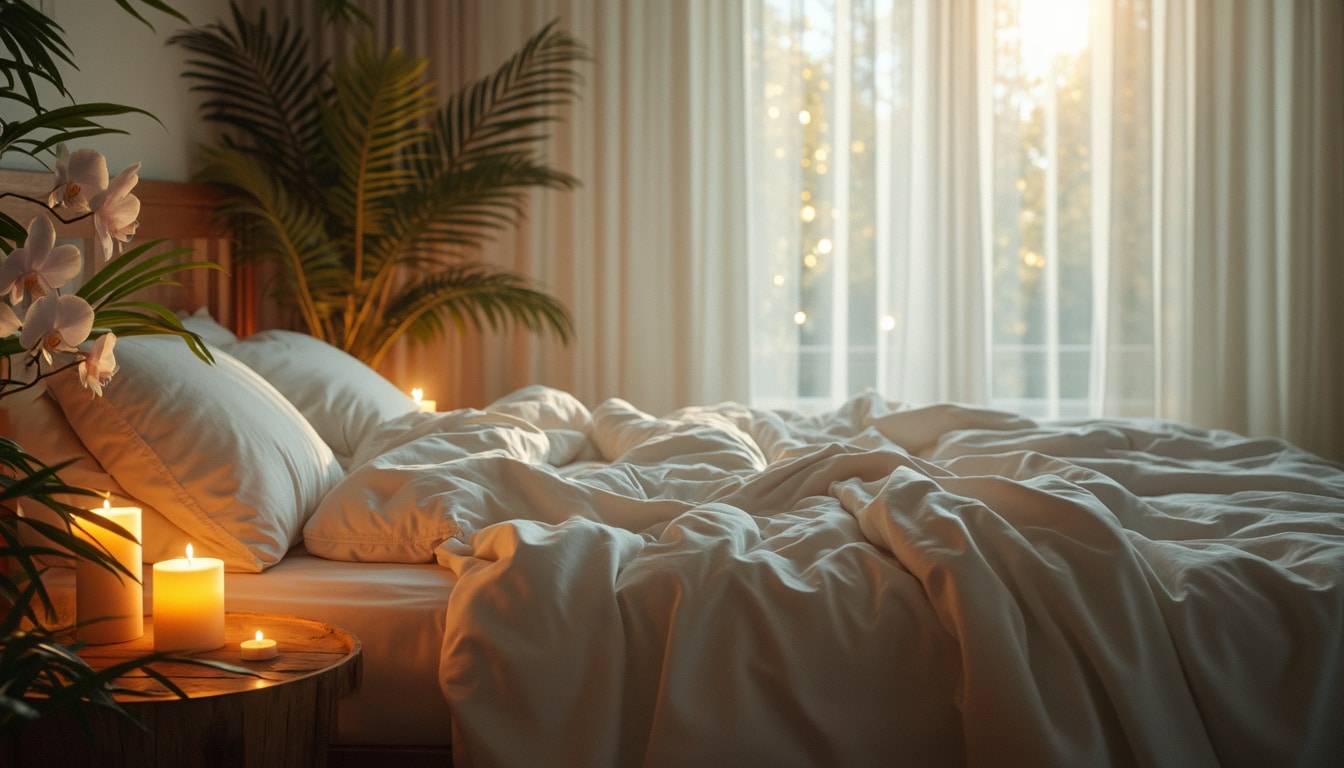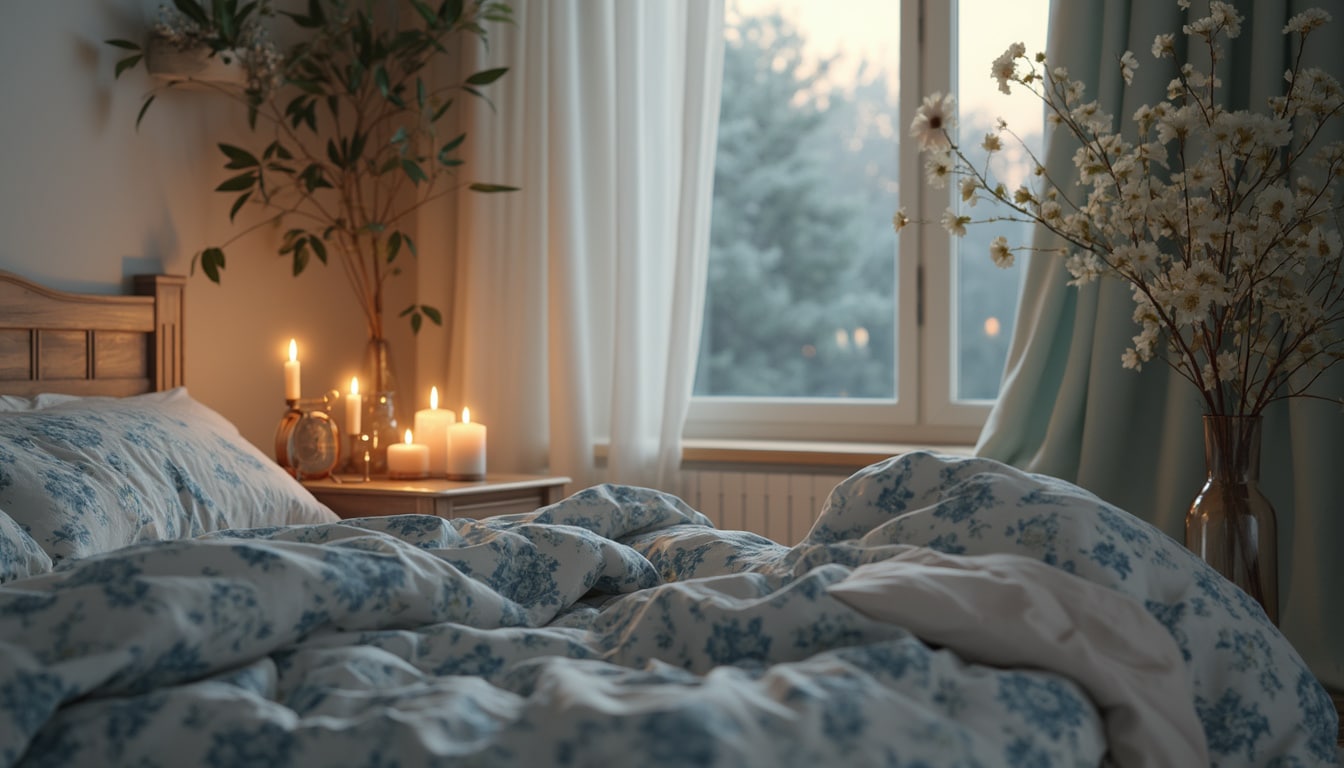Ever found yourself tangled in the sheets, struggling to drift into dreamland despite a long day? Or perhaps you’ve woken up after a full night’s rest still feeling like a zombie? You’re not alone—millions grapple with the elusive nature of sleep.
In our fast-paced lives, sleep has become more of a luxury than a necessity for many. The quest for the perfect slumber isn’t just about battling grogginess; it’s key to our overall well-being. From stress-induced late-night thoughts to the subtle hum of a smartphone’s glow, numerous factors can keep the Sandman at bay. But rest assured, the journey to better sleep is within reach. Let’s uncover the secrets to achieving a restful night and harnessing the power of sleep to enhance your vitality.

Table of Contents
ToggleThe Real Reasons You’re Struggling To Fall Asleep
Imagine slipping into bed, expecting the luxurious embrace of sleep, yet hours pass as you stare at the ceiling, frustrated. For many, this is a regular occurrence. The truth is, our modern world often hampers the natural mechanisms that promote sleep. Mental and emotional stress, as explained by sleep coach Kelly Murray, are prime culprits. When stress triggers the fight-or-flight response, our bodies produce cortisol – the very essence of alertness. Combine this with the blue light of screens, irregular work schedules, or even genetic predispositions, and we’ve concocted a potent sleep-destroying cocktail.
Dr. Abhinav Singh, an expert at the Indiana Sleep Center, emphasizes the impact of these elements on our ability to disconnect and relax. To address these root problems, it’s essential to first acknowledge their existence. We must recognize that sleep is not simply the absence of wakefulness – it requires conditions that perceive security and comfort. Many find solace in setting aside dedicated time to meditate with soothing tunes, similar to those found here.
Yet, if self-help strategies don’t bear fruit, meeting a healthcare professional is crucial. Not every restless night is a mere inconvenience; sometimes, it could hint at underlying health issues. Understanding these nuances is a significant step towards disentangling the complex web of sleep deprivation.
Practical Ways To Create A Peaceful Sleeping Environment
Envision a bedroom that is dark like a cave, cool, quiet, and ever so inviting. Dr. Singh describes this as the optimal environment for fostering restful sleep. The ambience of your sleeping space plays a critical role in signaling to your brain that it’s time to power down. Start with the basics: minimize ambient light with blackout curtains, maintain a steady cool temperature, and choose a comfortable mattress and pillows that cater to your individual needs.
Creating a bedtime routine anchored in relaxation can work wonders. You might indulge in a candle-lit shower, engage in breathwork, or scribble thoughts away in a journal. Alongside these practices, incorporating yoga into your nightly regimen can further provide the body and mind an avenue for unwinding. Discover more about this practice and its benefits here.
Don’t underestimate the significance of ditching electronic devices at least 45 minutes before hitting the pillow. Digital screens emit blue light, which interferes with the production of melatonin, the sleep hormone that helps regulate our circadian rhythm. This mini digital detox can have a marked impact on calming the racing mind, preparing you to drift effortlessly into a serene sleep.
The Benefits of a Consistently Timed Sleep Schedule
Attempting to catch up on sleep during weekends might seem like a brilliant strategy, but it often causes more harm than good. Maintaining a regular sleep schedule is paramount. Dr. Singh suggests adhering to the same waking and sleeping times, even on weekends. This habitual routine reinforces the body’s natural circadian rhythm, regulating the sleep-wake cycle and the synchronization of various bodily functions.
Your internal clock, when aligned finely, prepares your body for rest, ensuring heightened sleep quality. According to Dr. Singh, consistency sends a clear signal to the brain about when to expect sleep, reducing the guesswork and night-time anxiety often associated with irregular rest patterns.
Of course, life happens, and sometimes we deviate from our routine. In such instances, consider “sleep banking.” This concept involves accumulating a few extra hours of sleep before a hectic period, thus safeguarding your energy levels. Unlocking longevity by aligning with your chronotype can also illuminate strategies to harmonize your sleep with natural cycles, promoting effortless rest.
Why You Should Never Watch the Clock at Night
The temptation to glance at the clock when sleep eludes us can be potent, but it’s a habit best avoided. Both Murray and Dr. Singh advise against checking the time, as this often induces stress, thereby hindering sleep further. Watching the minutes tick by only amplifies anxiety, creating a vicious cycle of sleeplessness.
In a recent study examining time-monitoring behaviors, participants who fixated on the time reported increased frustrations and sleep troubles. Obsessing over how much sleep remains can create a psychological barrier, where relaxation is replaced by urgency.
Instead, cultivate the skill of staying present, focusing solely on the act of resting rather than the clock. Should you find yourself unable to sleep after 20 minutes, consider leaving the bed and engaging in a calming activity. This strategy fosters positive associations with sleeping spaces, emphasizing rest over anxiety.
Creating a Backup Plan for Sleepless Nights
Even when equipped with knowledge and a well-curated sleep routine, some nights continue to evade restful sleep. On such occasions, it’s crucial to have a backup plan. If tossing and turning extends beyond the norm, leave your bed and engage in an activity that spells relaxation without excitement, such as light stretching or a simple puzzle.
Refrain from diving into stimulating tasks like watching TV or reading an enthralling novel. The aim here is to maintain a state conducive to returning to bed once that inevitable sleepiness sets in. This midnight interlude is not about productivity but rather about facilitating a calm transition back to bed.
Continuing to occupy the bedroom without sleep may inadvertently create a negative association, suggesting to the brain that the bed is not solely for rest. By walking away and choosing a different, calm location, you’re reenforcing the bedroom’s exclusive connection to sleep.
For those particularly prone to sleepless nights, the concept of “sleep banking” discussed earlier – a tactic that involves banking extra sleep hours – remains a valuable tool. This plan requires dedication but pays off in improved energy and performance during demanding weeks.
Why Avoid Alcohol Before Bed
End-of-the-day relaxation often includes a glass of wine or a cocktail to unwind, yet this practice undeniably hampers sleep quality. While alcohol might facilitate falling asleep quicker, it’s notorious for disrupting the REM sleep cycle, the phase critical for restorative sleep. As alcohol metabolizes, it leads to fragmented sleep patterns and can prompt frequent awakenings, voiding any prior relaxation.
Further complicating this nightly ritual, alcohol’s diuretic nature may nudge you awake for unplanned bathroom breaks. This unfortunately maintains the cycle of restlessness and fatigue. As a less-disruptive alternative, consider sipping on a herbal tea or a creative mocktail designed for serenity.
For those curious about all-round detox methods that can improve sleep quality, an informative read like this dives into the interplay between nutrition, detox, and better sleep outcomes. Becoming mindful of evening consumption choices empowers individuals to make conscious decisions promoting longer, uninterrupted sleep cycles.
When to Seek Professional Guidance for Sleep
Recognizing when self-guided efforts fall short and it’s time for professional intervention is vital. If sleep difficulties persist despite revamped routines, reaching out to a sleep specialist can uncover unnoticed health issues. Here’s when to seek guidance:
– Frequent, unexplainable awakenings
– Chronic daytime fatigue despite sufficient sleep hours
– Recurring nightmares or night sweats
Diagnosing potential sleep disorders like sleep apnea or restless leg syndrome could be the missing puzzle piece, transforming the sleep experience. But don’t wait for crisis levels to seek help; proactive measures ensure anomalies are nipped in the bud.
Engaging with a professional doesn’t negate the positive habits you’ve already established. Instead, it builds upon them, often providing personalized advice tailored to specific needs. Comprehensive sleep assessments enable targeted interventions allowing for optimum rest and rejuvenation.
Did the holiday season mess up your sleep schedule? The #FestivalofSleep 😴 provides an opportunity to catch up on the rest your body needs.Learn more about lung health and sleep in this fact sheet: https://t.co/6q7RzUBGWo pic.twitter.com/vnuAeXxq3a
— Breathe Better (@BreatheBetter) January 3, 2025





